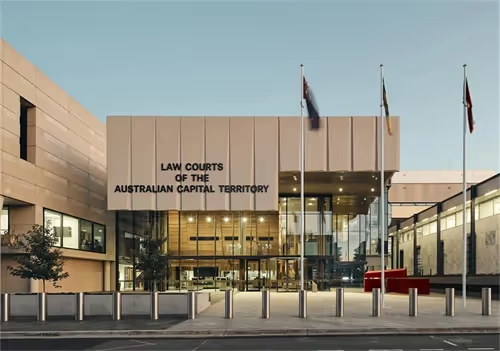Proceeds of Crime Offences

Understand What You Are Facing While Charged with Possession of Proceeds of Crime
Possession of proceeds of crime is a serious financial offence that involves knowingly dealing with money or property obtained through illegal means. This offence can apply even if you did not commit the original crime.
Key points:
- You can be charged for holding, transferring, or using funds or assets derived from criminal activity
- The offence applies to both direct and indirect involvement, including helping others handle unlawful proceeds
- Authorities rely on forensic accounting and financial monitoring to trace suspicious transactions
If you are under investigation or have been charged, contact Brightstone Defence Criminal Lawyers for immediate legal advice and strong representation.
Possession of proceeds of crime is an offence under Section 193B of the Crimes Act 1900 (NSW) and Section 400 of the Criminal Code Act 1995 (Cth). This law criminalises knowingly dealing with or possessing money or property derived from illegal activities. The severity of penalties depends on the value of the proceeds and the level of intent.
“Deal with” includes to receive, possess, conceal, dispose of, bring or cause to be brought into NSW, or engage directly or indirectly in a transaction.
Criminal Assets Recovery Act 1990 (NSW)
Under the Criminal Assets Recovery Act 1990 (NSW), several civil orders can be made to recover assets believed to be the proceeds of serious criminal activity. These orders allow the state to restrain, forfeit, or demand payment of unlawfully acquired wealth, even in the absence of a criminal conviction.
Restraining Order
A restraining order prevents any person from selling, transferring, or otherwise dealing with specified property, except as permitted by the order. In some cases, control of the property may be handed over to the NSW Trustee and Guardian. Police can apply for this order if they reasonably believe a person has been involved in serious criminal conduct and holds an interest in the property. The application must be supported by a sworn affidavit from a police officer. This type of order is often made to preserve property until a potential forfeiture order is decided.
Examples of serious criminal activity include drug trafficking, blackmail, illegal gambling, harbouring offenders, and homicide.
Assets Forfeiture Order
The NSW Crime Commission may apply to the Supreme Court for an assets forfeiture order, which transfers ownership of restrained property to the state. The court may grant the order if it is satisfied, on the balance of probabilities, that the person engaged in serious criminal activity within the past six years. Once forfeited, the property can be sold by the NSW Trustee and Guardian.
Proceeds Assessment Order
A proceeds assessment order requires an individual to pay the state an amount equal to the assessed value of benefits they received from criminal activity within the last six years. This order may be granted even if the specific assets no longer exist, as it focuses on recovering the value rather than the property itself.
Unexplained Wealth Order
An unexplained wealth order compels a person to pay an amount to the state that reflects the value of their unexplained assets. To make the order, the Supreme Court must be satisfied there is a reasonable suspicion that the individual was involved in serious criminal activity at some point, and that their wealth, either current or previously held was acquired unlawfully.
Elements the Prosecution Must Prove
For a conviction, the prosecution must establish beyond a reasonable doubt that:
- The accused was in possession of money or property – The funds or assets must be in their custody or control.
- The proceeds were derived from criminal activity – The assets must be linked to unlawful conduct.
- The accused knew, or was reckless as to, the criminal origin of the funds – Intent or knowledge of illegality is a key element.
Possible Defences
Possible legal defences include:
- Lack of Knowledge – The accused was unaware the funds were derived from crime.
- No Criminal Intent – The possession was incidental, with no intent to facilitate a crime.
- Duress – The accused was coerced into handling the funds.
- Mistaken Identity – The accused was wrongly implicated in the case.
A skilled defence lawyer can challenge the prosecution’s case and provide legal strategies to protect your rights.
Potential Penalties
Penalties for possession of proceeds of crime depend on the severity of the offence. Possible penalties include:
- Fine – A monetary penalty imposed by the court
- Community Correction Order (CCO) – A supervised order with conditions
- Intensive Correction Order (ICO) – A strict alternative to imprisonment
- Imprisonment – Sentences can reach up to 20 years for serious cases
The final penalty depends on the case’s specific circumstances and the accused’s prior record.

Legal Process
& Options
The legal process for possession of proceeds of crime involves an investigation and charge by authorities, an initial court appearance where the accused enters a plea, a trial if pleading not guilty, and sentencing if found guilty, with legal representation being crucial at each stage.
Pleading
Not Guilty
If you deny the allegations, you may plead not guilty. Your lawyer can contest the prosecution’s evidence by:
- Demonstrating a lack of knowledge or intent
- Proving the funds were legally acquired
- Identifying procedural errors or unlawful evidence collection
If the prosecution fails to prove its case beyond a reasonable doubt, you will be acquitted.
Pleading
Guilty
Pleading guilty can sometimes result in a reduced sentence, as it demonstrates remorse and cooperation. Factors the court may consider include:
- The value and severity of the offence
- The accused’s criminal history and character references
- Any mitigating circumstances, such as acting under duress
Depending on the case, the court may impose a lesser penalty in exchange for an early guilty plea.
Arson is the intentional destruction or damage of property using fire, whilst recklessly setting a fire is a less culpable offence where the damage was reasonably foreseeable.
Yes, you can be charged even if the property is jointly owned or you had no ownership at all.
Depending on the circumstances of your case, if the fire has caused significant damage or danger to life, a sentence of imprisonment is well within the sentencing scope. However, if the objective seriousness is low, alternative penalties are available.
The term “knowingly” means that you either knew or strongly suspected that the property was stolen at the time that you received or was dealing with it.
Yes, you do not need to steal the goods to be found guilty of this offence. Receiving, disposing or attempting to dispose of stolen goods is enough.
If you genuinely did not know that the goods were stolen and there are no reasonable grounds to suspect that you knew, this may be a valid defence to your case.
If you are found guilty or convicted of this offence, you will most likely receive a criminal record. However, it is important to receive legal advice for representation as your lawyer may argue for a non-conviction in order to avoid a criminal record. Contact Brightstone Defence to know your rights and options.
You are not required to explain where the items came from but anything you do or say can be used against you in court. Your best option is to remain silent and to avoid answering questions without legal advice. Contact Brightstone Defence for tailored legal advice for your case.
Yes, the police only need to have a reasonable suspicion that the goods were stolen or unlawfully obtained, not that they actually were.
If you are convicted of this offence, yes. However, your lawyer may argue for a non-conviction outcome such as a section 10 dismissal or a Conditional Release Order (Without Conviction), depending on your circumstances.
“Proceeds of crime” refers to property or benefits derived directly or indirectly from the commission of a criminal offence. This can include but not limited to:
- Money from drug trafficking
- Vehicles or homes purchased using illicit funds
- Cryptocurrency from fraud or scams
The law allows for the seizure, forfeiture, and confiscation of such assets, even without a criminal conviction in some cases.
Under section 193B of the Crimes Act 1900 (NSW), a person commits a money laundering offence if they:
- Knowingly deal with the proceeds of crime, and
- Intend to conceal its origin.
Under s 193A, to "deal with" includes:
- Receiving, possessing, concealing, disposing of, or using the proceeds;
- Engaging in transactions involving tainted property;
- Facilitating transfers through third parties or accounts.
Even passive conduct (e.g. allowing use of a bank account) can fall under the scope of this provision.
- Common property-related offences include:
- AUSTRAC monitors financial transactions and reports suspicious activity.
- NSW Police, AFP, and DPP work together to:
- Initiate proceeds of crime proceedings,
- Freeze assets,
- Coordinate criminal investigations into fraud, drug, and property offences.
Yes. If property is:
- Jointly owned but linked to crime,
- Transferred to third parties (including family) to avoid confiscation, or
- Used to facilitate criminal conduct,
it may be subject to forfeiture orders, unless an innocent interest can be proven under the relevant Act.
- Yes
If your property is restrained or subject to forfeiture under the Criminal Assets Recovery Act 1990 (NSW), our team can contest the orders, argue innocent ownership, and protect your financial interests. We have experience handling restraining orders, forfeiture orders, and unexplained wealth proceedings.
Do not answer questions or provide documents without first speaking to a lawyer. Contact Brightstone Defence immediately so we can step in, protect your rights, and respond on your behalf.
- Yes
Proceeds of crime and money laundering offences are treated very seriously under both NSW and Commonwealth law. Without legal advice, you risk making admissions or mistakes that could damage your case. A specialised criminal defence lawyer can guide you from the first police interview through to court representation.
We examine the evidence in detail, challenge whether the property truly qualifies as “proceeds of crime”, and test the prosecution’s ability to prove knowledge or intent. Our lawyers also negotiate with the prosecution to reduce or withdraw charges where possible.
“Proceeds of crime” refers to property or benefits derived directly or indirectly from the commission of a criminal offence. This can include but not limited to:
- Money from drug trafficking
- Vehicles or homes purchased using illicit funds
- Cryptocurrency from fraud or scams
The law allows for the seizure, forfeiture, and confiscation of such assets, even without a criminal conviction in some cases.
Under section 193B of the Crimes Act 1900 (NSW), a person commits a money laundering offence if they:
- Knowingly deal with the proceeds of crime, and
- Intend to conceal its origin.
Under s 193A, to "deal with" includes:
- Receiving, possessing, concealing, disposing of, or using the proceeds;
- Engaging in transactions involving tainted property;
- Facilitating transfers through third parties or accounts.
Even passive conduct (e.g. allowing use of a bank account) can fall under the scope of this provision.
- Common property-related offences include:
- AUSTRAC monitors financial transactions and reports suspicious activity.
- NSW Police, AFP, and DPP work together to:
- Initiate proceeds of crime proceedings,
- Freeze assets,
- Coordinate criminal investigations into fraud, drug, and property offences.
Yes. If property is:
- Jointly owned but linked to crime,
- Transferred to third parties (including family) to avoid confiscation, or
- Used to facilitate criminal conduct,
it may be subject to forfeiture orders, unless an innocent interest can be proven under the relevant Act.
- Yes
If your property is restrained or subject to forfeiture under the Criminal Assets Recovery Act 1990 (NSW), our team can contest the orders, argue innocent ownership, and protect your financial interests. We have experience handling restraining orders, forfeiture orders, and unexplained wealth proceedings.
Do not answer questions or provide documents without first speaking to a lawyer. Contact Brightstone Defence immediately so we can step in, protect your rights, and respond on your behalf.
- Yes
Proceeds of crime and money laundering offences are treated very seriously under both NSW and Commonwealth law. Without legal advice, you risk making admissions or mistakes that could damage your case. A specialised criminal defence lawyer can guide you from the first police interview through to court representation.
We examine the evidence in detail, challenge whether the property truly qualifies as “proceeds of crime”, and test the prosecution’s ability to prove knowledge or intent. Our lawyers also negotiate with the prosecution to reduce or withdraw charges where possible.
SUCCESS CASES & ARTICLES
Brightstone Defence delivers focused criminal defence services year-round and has built a strong track record of successful outcomes.
Meet our lawyers
WORLD CLASS
REPRESENTATION
100+ 5 Star Reviews
Personalised legal strategies tailored to each case
Recognised leaders in criminal defence law
Free initial consultation and case evaluation
Proven success in high-stakes and complex cases
Get AN instant estimated Quote
and a free consultation session
Facing criminal charges? Our experienced criminal defence lawyers are here to help. Book your free consultation now to discuss your case and understand your options.








